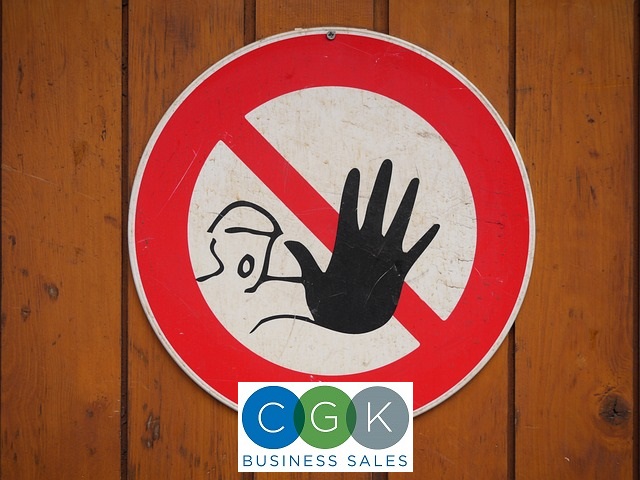Three Red Flags Sellers Should Look For In a Buyer

Three Red Flags Sellers Should Look For In a Buyer
Research indicates the number of entrepreneurs hoping to sell their businesses is on the rise. There are good reasons for that. Reports from the financial sector show that business values are increasing significantly despite challenges brought on by the pandemic and rising interest rates. At the same time, small businesses are facing growing uncertainties during the years to come. With all that in mind, many entrepreneurs want to sell and retire or move on to other ventures while the market is still in their favor. Here are three red flags sellers should look for in a buyer.
On the other end of the spectrum, a growing number of aspiring business owners are looking to buy ready-made companies. While they’re bound to pay something closer to fair value, in light of current market conditions, they’re also more likely to enjoy higher ROIs in the future. After all, some experts are predicting surging consumer confidence and buying power will cause business incomes to skyrocket once interest rates stabilize. Considering the number of businesses on the market right now, hopeful buyers have plenty of options to choose from.
Selling Your Business with Certainty
If you’re planning to sell your business in Austin, this is certainly an opportune time to do it. Buyers are out there, chomping at the bit to purchase your company. Having said that, not all of them are a good fit for your overall plan. Keep a diligent watch for the following red flags. They’ll let you know if a potential buyer isn’t one you with which you’d want to do business. The following are three red flags sellers should look for in a buyer
Relative Silence
If you’ve purchased or successfully sold a business in the past, think about how the transaction played out. If this is your first time selling a company, imagine how you’d most likely proceed with the process. You’d probably start off by reaching out to the seller to express your interest. Then, you’d have a business valuation carried out and possibly try to negotiate with the seller on the asking price. Along the way, you’d conduct research, digging deeper into the company’s past performance, debts, and other aspects.
From there, you’d create a letter of intent covering all the pertinent details of the transaction. You’d touch base with financial connections to obtain funding for the purchase, too. After that, you’d gather all the necessary documentation and share it with the seller to prove you’re ready, willing, and able to purchase the company. All the while, you’d make every attempt to show your enthusiasm and ambition while trying not to appear pushy.
From first contact, to finalizing the deal, the process generally takes anywhere from six months to a year. Still, you’d try to remain in contact with the seller the entire time. He or she would likely offer you the same courtesy in return.
Ideally, that’s also the way selling your business should work. Watch out for prospects who seem to lack a sense of enthusiasm. Perhaps they seem excited at the beginning but disappear for several months shortly thereafter. Maybe they won’t return your calls or emails after the fact. Someone with little purchasing power may contact you in the beginning but never connect you with anyone higher up on the totem pole.
Communication is key in the business world, and that extends to buying and selling. Being met with relative silence or spotty correspondence often means a potential buyer isn’t as interested in your business as he or she claims to be. Said buyer may not even be financially qualified to make a deal. A lack of communication is a surefire warning sign that you need to move on to other prospects.
Inadequate Knowledge or Experience
Buying a business requires well-rounded knowledge and experience. That certainly applies to purchasing and running a business, but those are only a couple of factors to consider. Having at least some level of familiarity with the company in question and its niche in the market is crucial as well.
Prospects who exhibit none of those attributes may not be worth your time and consideration. Those who have little insight into operating a business probably don’t realize how much work is involved in the process. They may initially be blinded by the excitement of becoming an entrepreneur. They could quickly lose interest once they gain a better grasp of the situation, though. Those who don’t fully understand your company and industry could fall victim to the same type of recoil.
As such, prospects who appear ignorant of your market niche, products, or services may not be prime candidates to buy your company. The same can be said of those who have never purchased or overseen a business before. A lack of knowledge and experience is a definitive red flag to look for when analyzing potential buyers.
Absence of Financial Transparency
All that brings us to the financial elements of a business transaction. Buyers are always advised to look over a company’s financials before committing to a purchase. Because of that, prospects are going to want to see your balance sheets, cash flow statements, past tax returns, accounts payable and receivable, and other documents. Hopefully, you already have all that paperwork on hand to share.
Keep in mind, this is a two-way street. You don’t want to waste your time on unqualified prospects, so you need to ask about their financials as well. Inquire about how they plan to fund the transaction. Will they be relying on personal funds, a loan from a bank or the SBA, or a combination of those options? Do they want you to offer financing? Are they prepared to provide a down payment, assume potential personal guarantees for financing, and meet additional terms, in order to do the deal?
Don’t hesitate to request all this information early on in the process. If a buyer is serious about purchasing your business and qualified to do so, he or she will have a plan for obtaining funding. Prospects should be willing and able to provide proof of funds that meets your expectations as well. If they’re hesitant to share their financials with you, they’re probably not capable of buying your company. If anyone outright refuses to disclose such information, this is a major sign of impending doom.
Protecting Your Best Interests When Selling a Business
Finding the right buyer for your business is essential. Doing so ensures both you and the future owner of your company will be satisfied with the deal. Though numerous prospects may step forward and express interest in your business, not all of them are serious about following through with the transaction. There are three red flags sellers should look for in a buyer. Watch out for these warning signs we’ve discussed, above, to protect your best interests and see a successful sale to fruition.

